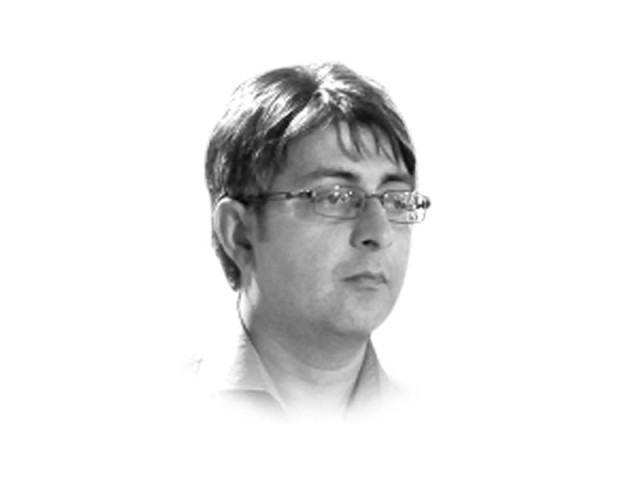Crash of civilisation
Muslims have more to fear from the likes of IS, al Qaeda, the Taliban and even the Hizbut Tahrir than from the West

The writer is an Islamabad-based TV journalist and tweets @FarrukhKPitafi
The Muslim population of the world is approximately 1.6 billion. China’s population is almost 1.4 billion. If you count people of Chinese origin, the number rises further. If you add only the numbers given above, the result is three billion. Three billion out of a global population of seven billion. The Cold War mentality or even the world war mentality cannot be applied here. The world cannot abandon such a huge population by declaring it as the cultural other, the unknown or the enemy. Someone, after all, has to be the standard-bearer of the human race. The Western thought at its inclusive best is the answer. But those who oppose assimilation, integration and a middle ground do the Western intellect a disservice. Those who want cultures and religions to clash hark back to the Middle Ages, when fault lines were more pronounced among them and less within. Sadly, while the West kept moving forward and evolved some of the greatest ideas known to humankind, political insecurity in the Muslim world stifled critical thinking. Islam as a guiding spirit of life doesn’t impose too many limitations. It is the outdated version of ijtihad (interpretation) that has held Muslims back. And that is precisely why Muslims around the world have more to fear from the likes of the Islamic State (IS), al Qaeda, the Taliban and even the Hizbut Tahrir. The main reason is that Muslim leaders, elected or autocratic, religious or secular, do not have any serious counter-argument to offer against the pronouncements being spouted by such groups. When the evolution of thought and interpretation of faith stopped among Muslims, the political thought in the world was still evolving. The idea of nation states had not emerged yet. There was no treaty of Westphalia. Nor were there economic unions like the EU. It was the age of empires. Muslims knew of only one. The caliphate or whatever passed for it. Yes, there was another distant empire in the form of Muslim India, but it was too distant. While the thought stopped there, the body of an outdated idea kept dragging itself until the advent of the 20th century, in the shape of the Ottoman Empire. And when the empire unceremoniously fell apart, that didn’t put an end to the idea. Reactionary groups, since then, have tried to revive the same idea every now and then. No one pointed out that the idea of an empire was just a derived one, not an original one associated with faith.
Muslim thought needs investment, research and support to evolve. At the time of their cultural best, Muslim societies were inclusive, tolerant and productive. That can be the case now too. The problem is that the Muslim elite cannot achieve this alone because many among them are corrupt, authoritarian, divorced from ground realities of everyday life or are in suspended animation, being overawed by the proliferation of reactionary ideologies like that of the IS. The West and other cultures have the resources as well as a Muslim population that can help move things forward. As long as a few things are respected and not meddled with, Muslims may want to contribute in building synergy. These few things are the words and meaning of the Holy Quran, the finality of Prophethood, Islamic eschatology and a Muslim sense of perspective. As long as you are cognisant of these and a few other red lines, you will not find much resistance from mainstream Muslims. This is the age of software. Without updating the software and creating anti-viruses, you can drop as many daisy cutters and napalm bombs as you want, but that will not resolve the problem. What the world now needs to worry about is the crash of civilisation.
Published in The Express Tribune, December 5th, 2015.
Like Opinion & Editorial on Facebook, follow @ETOpEd on Twitter to receive all updates on all our daily pieces.














COMMENTS
Comments are moderated and generally will be posted if they are on-topic and not abusive.
For more information, please see our Comments FAQ